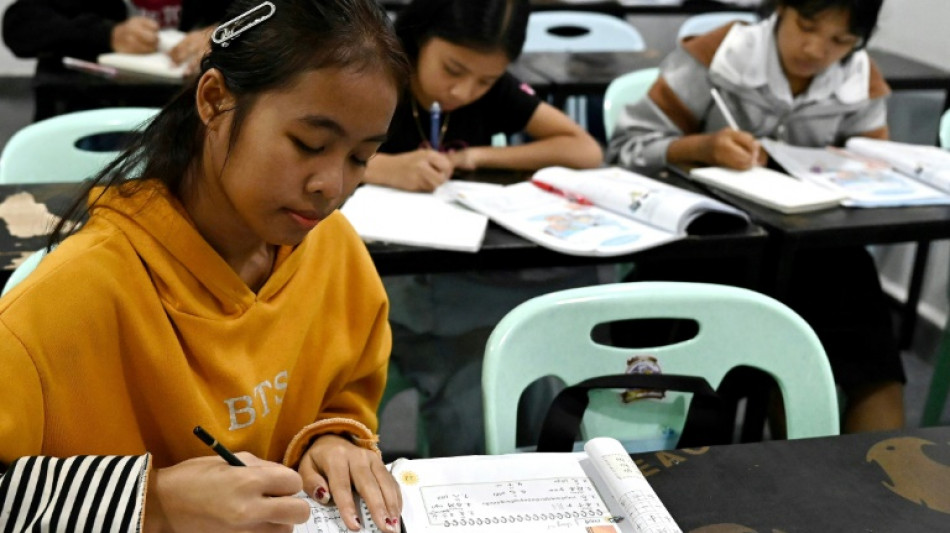
Chinese investment sparks rise of Mandarin in Cambodia

Watching Chinese money flow into his home city of Sihanoukville, Cambodian linguist Um Keangseng opened a language school to meet the growing demand for Mandarin lessons.
Sihanoukville has been the biggest recipient of Chinese investment into Cambodia, where President Xi Jinping will arrive Thursday.
"Every province has Chinese investors," said Um Keangseng, who founded his school a decade ago to address the market for skilled communicators.
"There are Chinese businesses everywhere," he said, to the point where "Chinese and English are both equally important".
Um Keangseng's Tai Zhong No.2 School has more than 400 part-time students, from elementary to college age, learning Mandarin -- the world's most spoken first language.
The 39-year-old grew up learning Chinese from his grandparents, migrants from Guangdong province.
"People used to laugh at us," he said, believing Chinese was not as useful as English, French or Thai.
Now many of his former students have gone into business with the Chinese, to work in their companies or even become investors themselves.
- 'Unstoppable rise' -
While Um Keangseng displayed characters on a computer screen, student Ouk Sok Heng carefully practised the stroke order.
The 18-year-old has never set foot in China but has ambitions to continue his IT studies at a Chinese university.
"In the future, I want to do business with Chinese people. It will be easy (to earn money) if I can speak Chinese," he said.
The port city of Sihanoukville is packed with Chinese-owned and run casinos, hotels, restaurants and factories which have opened in recent years.
Um Keangseng said his small nation relies on foreign countries -- "especially China" -- with language being an important aspect "to develop our country together".
Mandarin skills open up opportunities in the city, such as receptionist jobs, said student Kok Ravy.
"If we don't speak Chinese, it will be difficult for us," said the 21-year-old.
Analyst Ou Virak hopes Cambodians will be able to diversify their language skills, without forgetting their roots and identity.
"I would want us to entrench ourselves in the Khmer language and the Khmer culture," he said.
But parents are increasingly sending their children to Mandarin lessons to boost their prospects, he said, and because of a "notion of the... unstoppable rise of China".
H.Leroy--PS

 London
London

 Manchester
Manchester
 Glasgow
Glasgow
 Dublin
Dublin
 Belfast
Belfast
 Washington
Washington
 Denver
Denver
 Atlanta
Atlanta
 Dallas
Dallas
 Houston Texas
Houston Texas
 New Orleans
New Orleans
 El Paso
El Paso
 Phoenix
Phoenix
 Los Angeles
Los Angeles



